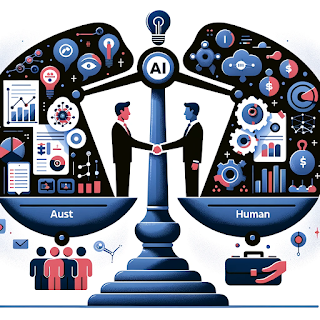The Evolution of Tech Buying: Navigating the New Era of AI Integration and Data Synchronicity
In the realm of technology that delivers value, solves problems, and justifies investment, there's a common consensus among both sellers and buyers: the technology must work efficiently, be secure, be dynamic, flexible, reliable, and improve over time. Whether it's an Enterprise Content Management (ECM) system, an Enterprise Resource Planning (ERP) tool, Customer Relationship Management (CRM) software, Business Process Automation (BPA), Business Process Management (BPM), or cloud-based services like IaaS, PaaS, and SaaS, the requirements are the same.
Traditionally, the market has offered two paths: point solutions that are quick to adopt and comprehensive platforms provided by large vendors boasting a range of products and features. This dichotomy presents a pivotal question: what convinces clients to choose one over the other? Often, the allure of platforms that offer a bit of everything, enabling organizations to access various products and applications through one or a few transactions, is irresistible. Decision-makers lean towards investing in a platform or two, hoping the best features will eventually emerge or settling for a "good enough" solution.
However, the rise of AI and its commercialization are set to challenge this status quo. Unlike traditional software solutions, AI's competitive landscape is not monopolized by a single entity. This diversity promotes a shift towards flexibility in integrations across platforms, emphasizing security and governance. What is the key driver behind this transition? Data.
AI technologies, whether Large Language Models (LLMs) or machine learning systems, are only as effective as the data they are permitted to use. While integrating with other systems, platforms like Microsoft or ServiceNow maintain a protective stance over their ecosystems. This protectionism often hinders data's free flow and full utilization due to technical limitations. Organizations frequently resort to data warehouses and lakes or bespoke enterprise system integrations to consolidate and synchronize data from various sources.
The future of technology decision-making hinges on the successful sharing and synchronization of information. As AI's demand for data grows, closed platforms become increasingly unattractive. We're on the cusp of a significant paradigm shift, moving away from the "one-stop-shop" approach that has dominated the past two or three decades. The emerging winners will be those vendors who excel in data synchronization and integration, partnering with cloud and on-premise infrastructure providers willing to accommodate clients' unique system integration needs without forcing them into a monolithic ecosystem.
This impending change is poised to redefine how we select, manage, share, and integrate technology. It challenges the conventional wisdom of platform acquisition based on the breadth of a vendor's product suite. The days of vendors relying on their ecosystems to dominate the market may soon be numbered. As AI enhances our technological capabilities, it also demands a new approach to handling and presenting our data. The narrative around platform acquisitions is due for an overhaul, and vendors clinging to the old model of exclusivity and ecosystem lock-in might find themselves facing an unexpected reckoning.
In conclusion, integrating AI into business development strategies is pivotal in technology acquisition and utilization. As we navigate this new era, flexibility, openness, and the ability to synchronize and share data across platforms will define success. The shift towards these values not only promises to enhance the effectiveness of our technological tools but also to foster a more interconnected and innovative business landscape.



Comments
Post a Comment